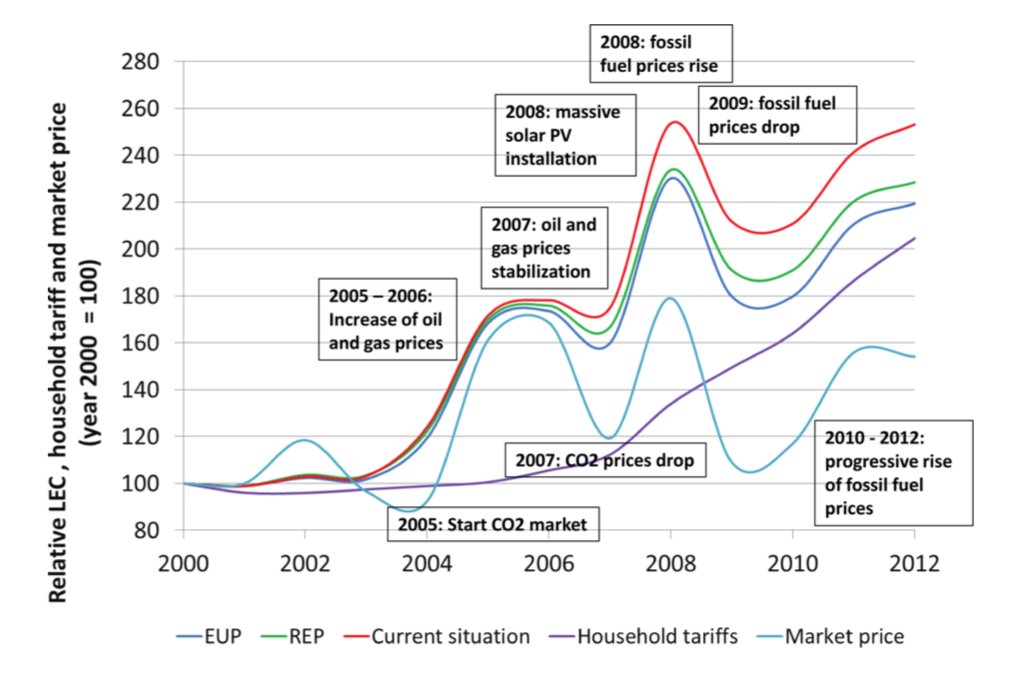Project Description
The “cost of not doing” energy planning: The Spanish energy bubble
by
Gómez, A.; Dopazo, C.; Fueyo, N.
in
Energy. 2016
Abstract
The Spanish power generation sector is facing dire problems: generation overcapacity, various tariff hikes over recent years, uncertainty over the financial viability of many power plants and a regulatory framework that lacks stability. This situation is the consequence of both poor energy policies and the economic crisis in the late 2000s and early 2010s. In this paper we analyze the following three points from an energy planning perspective: how the country has arrived at this situation; whether other alternatives would have been possible through adequate planning; and the quantitative benefits that would have been accrued from such planning. We do so by developing a LEAP model, and building three scenarios that allow to segregate the costs of the economic crisis from the costs of the lack of planning.
We find that appropriate energy planning could have reduced investments in the Spanish power sector by 2010€28.6 billion without compromising on performance in terms of sustainability or energy security, while improving affordability.
The main causes of these surplus investments were two supply bubbles: those of gas combined cycles and of solar technologies. The results of this work highlight the value of rigorous, quantitative energy planning, and the high costs of not doing it.

